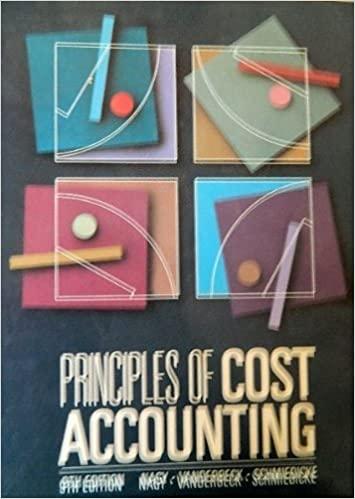Question
Part A During the year, Heron Company has the following inventory transactions. Date Transaction Number of Units Unit Cost Total Cost Jan. 1 Beginning inventory
Part A
During the year, Heron Company has the following inventory transactions.
| Date | Transaction | Number of Units | Unit Cost | Total Cost |
|---|---|---|---|---|
| Jan. 1 | Beginning inventory | 35 | $42 | $1,470 |
| March 4 | Purchase | 122 | 44 | 5,368 |
| June 16 | Purchase | 184 | 47 | 8,648 |
| Sept. 9 | Purchase | 105 | 48 | 5,040 |
| Total | 446 | 20,526 |
During the year, Heron sells 385 units of inventory for $55 each.
- Assuming the FIFO inventory cost method, calculate ending inventory, cost of goods sold, sales revenue, and gross profit for the year.
- Assuming the LIFO inventory cost method, calculate ending inventory, cost of goods sold, sales revenue, and gross profit for the year.
- Assuming the weighted-average inventory cost method, calculate ending inventory, cost of goods sold, sales revenue, and gross profit for the year. (Round weighted-average cost per unit to two decimal places.)
- Which method results in the highest profit? Please explain your answer.
Part B
Owl Company has the following transactions during March: March 3 Purchases inventory on account for $3,300, terms 3/10, n/30. March 5 Pays freight costs of $280 on inventory purchased on March 3. March 6 Returns inventory with a cost of $700. March 12 Pays the full amount due on March 3 purchase. March 29 Sells all inventory purchased on March 3 (less those returned on March 6) for $5,700 on account.
Record all transactions, assuming the company uses a perpetual inventory system.
Step by Step Solution
There are 3 Steps involved in it
Step: 1

Get Instant Access to Expert-Tailored Solutions
See step-by-step solutions with expert insights and AI powered tools for academic success
Step: 2

Step: 3

Ace Your Homework with AI
Get the answers you need in no time with our AI-driven, step-by-step assistance
Get Started


